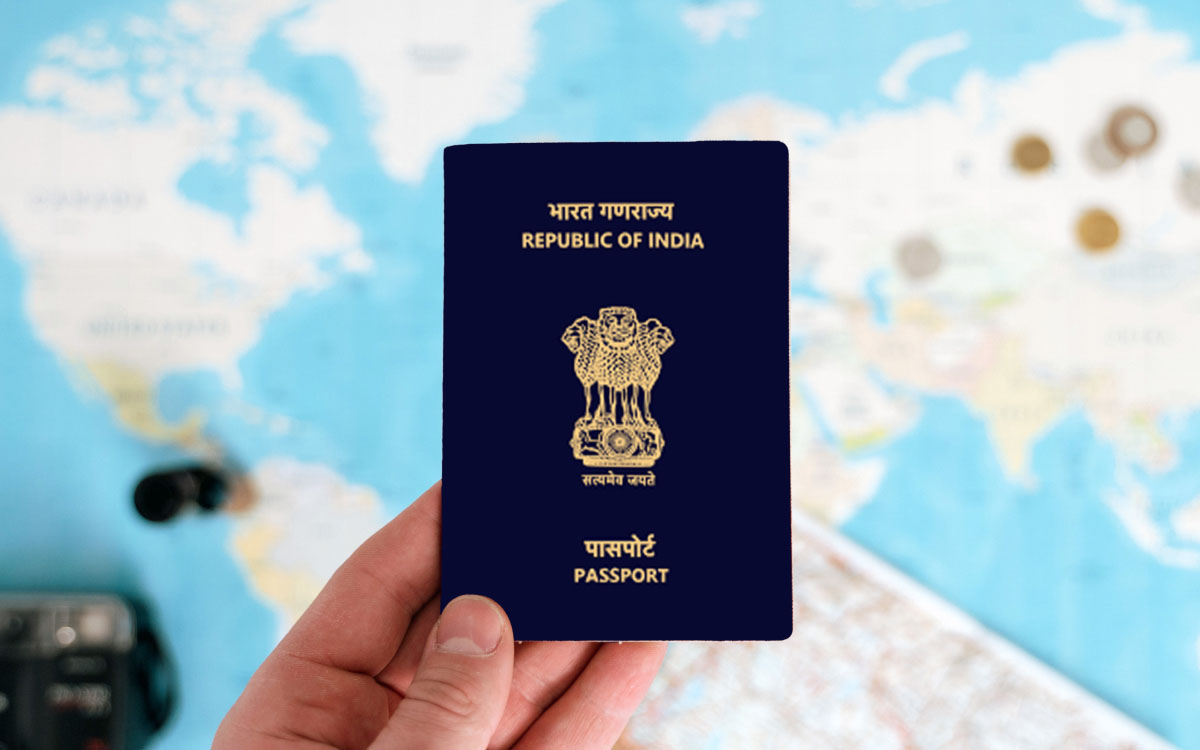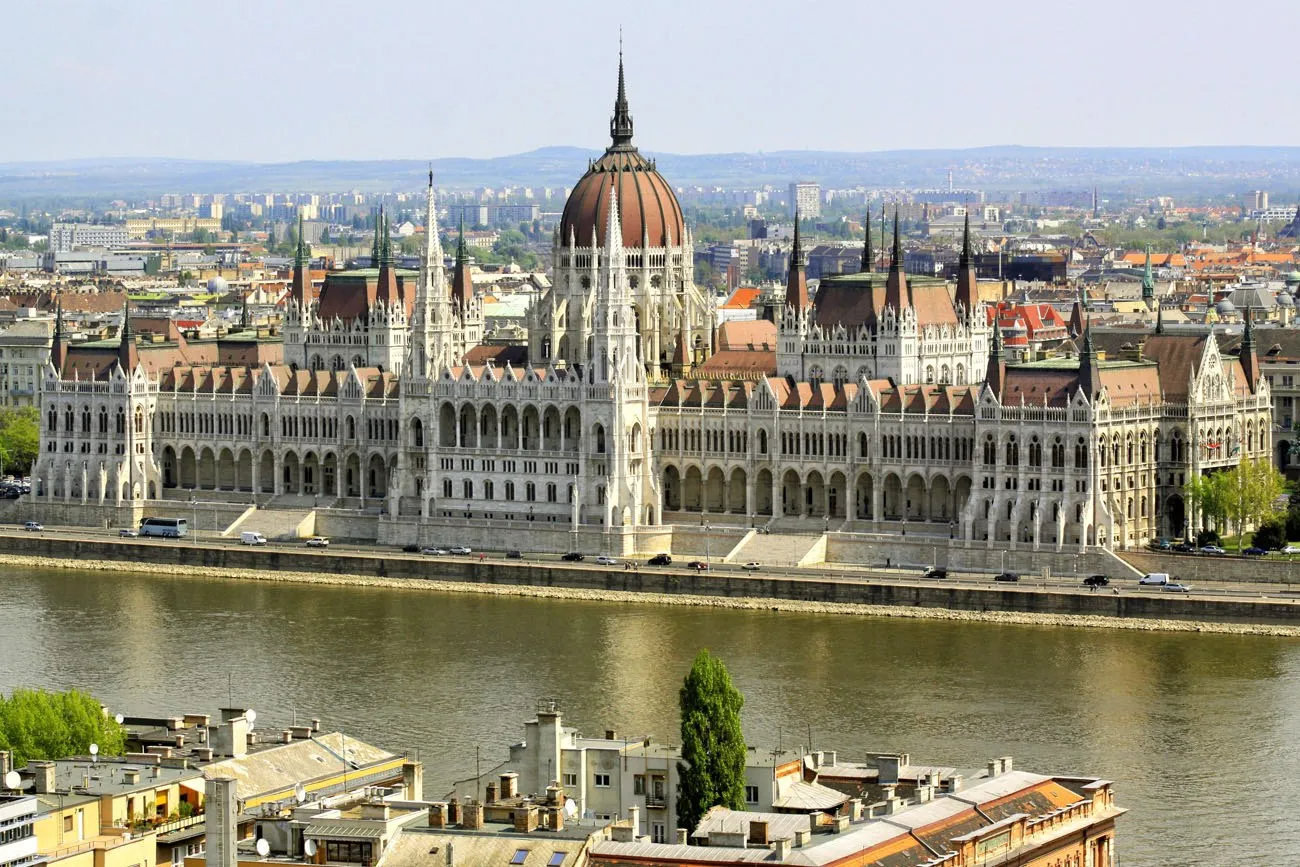Turkey, strategically located at the crossroads of Europe and Asia, has long been a coveted destination for expatriates, retirees, digital nomads, and professionals. Its unique position not only connects two continents but also brings together a rich fusion of cultural influences that span millennia. From the vibrant pulse of Istanbul, blending ancient Byzantine and Ottoman traditions, to the serene Mediterranean coast, where the relaxed pace of life offers a stark contrast to bustling urban centers, Turkey offers a multifaceted lifestyle that appeals to those looking to experience both history and modernity.
In 2025, Turkey continues to draw individuals from all over the world, whether they’re seeking a more affordable living environment, the allure of diverse landscapes, or the warmth of Turkish hospitality. With its lower cost of living compared to many Western countries, the chance to experience a vibrant mix of traditions and contemporary culture, and a government actively working to make it easier for foreign residents to settle, Turkey remains an attractive proposition for those wanting to relocate.
However, it’s important to consider the cons of living in Turkey, such as economic fluctuations and bureaucracy, which can impact the expatriate experience. Understanding the various cons of living in Turkey is essential for making an informed decision about relocation. The most common cons of living in Turkey that expatriates face include challenges related to language barriers, bureaucracy, economic instability, and the overall cons of living in Turkey that newcomers should recognize.
Pros of Living in Turkey

Affordable Cost of Living
Living in Turkey offers a remarkably affordable lifestyle, especially when compared to the high costs of living in major Western countries. For expatriates, retirees, and remote workers, the economic benefits of relocating to Turkey are clear. With a much lower cost of living, many can maintain a comfortable lifestyle while spending far less on essentials, leisure, and housing.
- Housing and Rent: Renting in Turkey is significantly cheaper than in Western countries like the UK, the US, or France. In cities like Istanbul, Izmir, and Antalya, you can rent spacious apartments in central locations for a fraction of what you’d pay in cities like London or Paris. For example, a 1-bedroom apartment in the city center of Istanbul may cost between 4,000–6,000 Turkish Lira (TRY) per month, whereas a similar apartment in London can cost upwards of £2,000 ($2,500). Additionally, outside major urban areas, such as in towns like Bodrum or Fethiye, rental prices drop even further, making it a popular choice for retirees or those seeking a more tranquil and budget-friendly lifestyle.
- Groceries and Dining Out: The affordability extends to everyday necessities. Groceries in Turkey are incredibly inexpensive when compared to Western countries. A shopping trip for basics like fruits, vegetables, meat, dairy, and grains typically costs much less than in cities like New York or Paris. For example, a kilogram of fresh fruit in Istanbul might cost just 20 TRY, while the same would likely cost several times more in many Western cities. Dining out is equally affordable, with a mid-range restaurant meal costing around 100–250 TRY per person, and local specialties like kebabs or pide (Turkish pizza) are not only delicious but budget-friendly. Street food options like simit (a type of sesame bread) or döner kebab cost as little as 10–15 TRY, making it easy to enjoy Turkish cuisine without breaking the bank.
- Transportation: The public transportation network in Turkey is extensive, efficient, and affordable. Cities like Istanbul and Ankara boast metros, trams, buses, and ferries that allow you to get around the city at a fraction of the price you’d pay for transport in major European cities. A one-way ticket for public transport in Istanbul costs around 15 TRY, compared to £2–£3 for a similar journey in London. Petrol prices are also relatively affordable, but due to frequent traffic congestion in major cities, using public transportation remains the preferred option for many.
Beautiful Natural Environment and Scenic Locations
Turkey’s diverse geography makes it a unique destination for nature lovers. Whether you prefer spending your days at the beach, hiking through rugged mountains, or exploring lakes and caves, Turkey offers a variety of landscapes to enjoy. The combination of temperate climates and varied ecosystems makes it an ideal location for anyone wanting to explore the great outdoors.
- Coastlines and Beaches: Turkey’s Mediterranean and Aegean coastlines, often referred to as the “Turkish Riviera,” are famous for their stunning beauty. With crystal-clear waters, idyllic beaches, and charming coastal towns, this region is a haven for sun-seekers. Cities like Bodrum, Marmaris, and Fethiye offer a blend of modern amenities and scenic seaside vistas, making them ideal for a more relaxed lifestyle. The towns of Kas and Antalya provide a perfect mix of coastal tranquility and access to historical landmarks, while further off the beaten path, places like Patara and Kekova offer pristine, unspoiled beaches. Whether you’re into water sports, swimming, or simply soaking up the sun, these areas provide an ideal backdrop for an outdoor lifestyle.
- Mountains and Lakes: The interior of Turkey is just as stunning. The central Anatolian Plateau and regions like Cappadocia, with its surreal landscape of fairy chimneys and cave dwellings, offer opportunities for hiking, hot air balloon rides, and exploration. The picturesque Lake Van in the East or the fresh, cool highlands of the Black Sea Region present a completely different set of landscapes, with lush greenery, serene lakes, and opportunities for nature walks. These regions are perfect for those who enjoy a more active lifestyle surrounded by awe-inspiring natural beauty.
- Climate: Coastal regions benefit from a Mediterranean climate with warm, dry summers and mild winters. This makes it an attractive destination for expatriates seeking sunny weather year-round. On the other hand, Turkey’s inland regions, such as Cappadocia and the Anatolian Plateau, experience more pronounced seasonal shifts, with hot summers and snowy winters. This variety in climate allows expatriates to choose a region that fits their personal preference, whether they enjoy year-round sunshine or the change of seasons.
Rich Culture and History

One of the most attractive aspects of living in Turkey is the opportunity to immerse oneself in a culture that is both rich in history and a melting pot of diverse traditions. Turkey’s strategic location has made it a crossroads of civilizations for centuries, and this fusion of cultures is evident in the country’s daily life, architecture, and social customs.
- Historical Sites and Landmarks: Turkey is a treasure trove of historical landmarks, many of which are UNESCO World Heritage Sites. From the ruins of ancient Ephesus and the stunning rock formations of Cappadocia to the majestic Hagia Sophia and the Roman Temple of Apollo, history is woven into the fabric of daily life in Turkey. For those interested in ancient history, exploring the ruins of Troy or the biblical sites in the southeast, like Harran and Urfa, provides an unmatched opportunity to step back in time.
- Cultural Fusion: Turkish culture is a blend of Eastern and Western traditions. The country has inherited elements from its Ottoman and Byzantine past, combined with influences from Central Asia, the Middle East, and Europe. This fusion manifests in a wide range of experiences—from the architectural splendor of Istanbul’s mosques and palaces to the lively bazaars, like the Grand Bazaar, where the hustle and bustle of merchants selling spices, textiles, and jewelry is part of the cultural fabric. Turkish festivals, such as the International Istanbul Film Festival and local folk celebrations, offer expatriates a chance to engage with both contemporary and traditional aspects of Turkish culture.
- Cuisine: Turkish cuisine is celebrated worldwide for its richness and variety. It is an essential part of the culture, with dishes varying greatly from region to region. In the west, you’ll find dishes influenced by Mediterranean flavors such as olive oil-based meals, while in the east, meat and spices take center stage in heartier fare. Signature dishes include kebabs, mezes (small appetizers), köfte (meatballs), baklava (sweet pastry), and Turkish delight. For expatriates, adjusting to the local food culture is an exciting aspect of living in Turkey. The food is not only delicious but also affordable and accessible, with many street vendors offering snacks like simit or gözleme (savory flatbreads).
Healthcare System
Turkey has made significant investments in its healthcare system in recent years, and it is widely regarded as one of the best in the region. Expats benefit from high-quality medical services at a fraction of the cost they would pay in Western countries, making it an attractive destination for those concerned about healthcare costs.
- Affordable Healthcare: The cost of healthcare in Turkey is remarkably lower than in countries like the US, Canada, or the UK, and expats can often access quality care for a fraction of what they might pay back home. For example, a routine doctor’s consultation can cost as little as 100–200 TRY, whereas in the UK or US, similar visits would cost significantly more. Additionally, private healthcare providers in Turkey offer services at competitive prices, making it affordable for expats seeking specialized treatment or private hospital care.
- Medical Facilities: Turkey has a growing number of state-of-the-art hospitals, particularly in urban areas like Istanbul, Ankara, and Izmir. These hospitals are equipped with modern medical technology, and many have internationally recognized accreditations. Expats can access top-tier care, and many hospitals cater specifically to international patients with English-speaking staff, making it easier for expatriates to navigate the healthcare system.
- Health Insurance: Health insurance is affordable and widely available. Expats often opt for private insurance, which can provide comprehensive coverage, including access to private hospitals and specialists. Public health insurance (SGK) is available to residents and offers basic coverage at a reasonable cost, though many expats prefer private health insurance for its broader scope and quicker access to care.
Visa and Residency Opportunities
Turkey has streamlined the visa and residency process in recent years, making it easier for expatriates to establish long-term residency.
- Residency Permits: Turkey offers several pathways for obtaining a residence permit, with the most common being through property ownership. Expats who purchase property worth over $75,000 can apply for a residence permit, and the process is typically faster and less complex than in many other countries. Additionally, work and student visas are available for those seeking employment or academic opportunities in Turkey, and these visas can often be extended.
- Citizenship by Investment: For those who wish to take the next step and obtain Turkish citizenship, Turky Citizenship by Investment program offers an attractive option. Expats can acquire Turkish citizenship by purchasing property worth at least $400,000 or by making a similar financial investment in Turkey. This process is relatively straightforward compared to other countries that offer citizenship by investment.
- Long-Term Visas: Turkey provides various visa options for expatriates, including work visas, student visas, and long-term tourist visas. Work visas are available for foreign professionals, particularly in fields such as education, technology, and tourism. Long-term tourist visas, valid for up to a year, can be extended, offering flexibility for those who want to stay longer in the country.
Vibrant Expat Community
Turkey is home to a rapidly growing expatriate community, particularly in major cities and popular coastal destinations. This community offers a supportive network for newcomers, making the transition to life in Turkey much easier.
- Social Integration: In cities like Istanbul, Izmir, and Antalya, expatriates can find vibrant social networks where they can meet like-minded people. Whether it’s through online forums, meet-up groups, or social events, expats often find it easy to build a new social circle. The Turkish people are known for their warmth and hospitality, making it easy for expatriates to feel welcome and integrated into local communities.
- Support for Newcomers: There are numerous services available for expatriates, including language schools, expat-focused legal advisors, and relocation consultants who help new arrivals navigate the practicalities of life in Turkey. Expats can also participate in cultural exchange programs, which allow them to learn more about Turkish customs and traditions while sharing their own cultures.
Cons of Living in Turkey

Language Barrier
Although English is widely spoken in major cities and tourist areas, the language barrier remains one of the most prominent challenges for expatriates, particularly in less urbanized areas or when interacting with Turkish institutions.
One of the significant cons of living in Turkey is the impact of economic instability on daily life. Many expatriates who experience the cons of living in Turkey find that fluctuating prices can affect their finances.
When considering the cons of living in Turkey, it’s also crucial to explore how these factors affect daily life and long-term plans for expatriates. From the economic instability to the practical issues faced daily, the cons of living in Turkey are significant.
Expatriates often evaluate the cons of living in Turkey against the backdrop of personal experiences and local integration challenges. Recognizing these cons of living in Turkey can help in adapting more effectively.
Among the prominent cons of living in Turkey, economic instability is often cited by expatriates who find that fluctuating prices can affect their finances. The cons of living in Turkey also highlight the challenges posed by traffic and infrastructure issues in major cities, which can contribute to daily stress for residents.
- Limited English Proficiency in Rural Areas: In smaller towns, villages, or regions that do not rely heavily on tourism, English may not be widely understood. This can lead to communication difficulties when dealing with everyday activities such as shopping, dining, or interacting with locals. For instance, you may find it hard to explain specific needs at a local market, especially in less tourist-heavy areas. While younger generations in urban centers often speak English, older people or those in more rural areas may only be comfortable communicating in Turkish.
- Bureaucratic Processes: Many official procedures, such as obtaining a residence permit, signing contracts, or handling taxes, are entirely in Turkish. Government offices may not offer services in English, and bureaucratic forms, documentation, or legal jargon can be overwhelming for expats who are not fluent in the language. Without Turkish, expats may face frustration when attempting to navigate the legal system, which includes filling out forms, understanding regulations, or communicating with authorities. This language barrier often necessitates hiring local translators or legal advisors, adding extra costs to your relocation expenses.
- Cultural Differences in Communication: The way people communicate in Turkey can differ significantly from that in Western countries. While directness is often preferred in many Western cultures, in Turkey, communication can be more indirect or polite, especially in formal or business contexts. Expats who are not familiar with these nuances may misinterpret intentions or struggle with interpersonal interactions in professional or personal environments.
Bureaucracy and Administrative Challenges
Furthermore, adjusting to cultural differences is another of the cons of living in Turkey that many expatriates find challenging. Understanding these cultural nuances is vital for a successful integration.
Furthermore, many expatriates report that the bureaucracy in Turkey can be frustrating, making the cons of living in Turkey more pronounced for those not familiar with the system. Being aware of these cons of living in Turkey can help newcomers prepare for their relocation.
Navigating Turkey’s bureaucratic landscape can be a time-consuming and frustrating experience, particularly for newcomers unfamiliar with local systems. Despite improvements in recent years, the bureaucracy remains complex and slow-moving.
- Slow Processing Times: Obtaining permits, visas, or other legal documentation can be a lengthy process in Turkey. Expats applying for a residence permit, work visa, or even a driving license often encounter waiting periods of several weeks or months, depending on the type of application. While the government has modernized many services in recent years, there is still a backlog of requests that can delay approvals. Furthermore, the necessity for multiple visits to government offices and the lack of clear guidelines can cause additional frustration, especially for those unfamiliar with the local system.
- Taxation and Regulations: Understanding Turkey’s tax laws and regulatory frameworks can be overwhelming for expatriates, particularly those without a background in Turkish business or legal practices. For example, navigating income tax obligations, property taxes, and social security contributions can be challenging without local expertise. While Turkey has treaties with many countries to avoid double taxation, expats may still need to consult with tax professionals to ensure they are compliant with both Turkish tax laws and those of their home country. Additionally, Turkish business regulations and practices may be different from what expatriates are used to, making it difficult to set up businesses or navigate employment contracts without legal assistance.
- Frequent Regulatory Changes: Turkey’s laws and regulations, particularly in the realms of property ownership, business registration, and employment, can change frequently. These changes can often catch expats off-guard, requiring them to stay updated on new rules. Expats might need to constantly adjust to new tax rates, residence laws, or business regulations, which can make long-term planning difficult.
The cons of living in Turkey also highlight the challenges posed by traffic and infrastructure issues in major cities, which can contribute to daily stress for residents.
For those weighing the pros and cons of living in Turkey, a thorough understanding of the cons is vital. The cons of living in Turkey can shape one’s experience and expectations.
Economic Instability and inflation are often highlighted among the cons of living in Turkey, and these factors play a pivotal role in shaping the expatriate experience.
Understanding the economic landscape, including the cons of living in Turkey, will allow expatriates to plan accordingly for their future in the country.
Another common con of living in Turkey is the challenges of adjusting to cultural differences, which can be a significant aspect of the expatriate experience. Understanding these pros and cons of living in Turkey is crucial for a successful transition.
In summary, the cons of living in Turkey can be daunting, especially for new arrivals. From navigating bureaucratic challenges to understanding the nuances of daily life, these cons of living in Turkey require careful consideration.
Economic Instability and Inflation
Traffic and infrastructure issues are among the well-known cons of living in Turkey and can significantly impact daily life for residents.
Turkey has faced significant economic volatility in recent years, which has led to fluctuating inflation rates and a weakening currency. These challenges can have a profound effect on the financial well-being of expatriates, especially those relying on fixed incomes or foreign currency.
Adjusting to cultural differences is yet another cons of living in Turkey that expatriates must embrace for a smoother transition.
In summary, understanding the various cons of living in Turkey is crucial for expatriates looking to make informed decisions about relocating to this beautiful country.
- Inflation: The Turkish economy has struggled with high inflation, particularly in the last few years. This inflation has driven up the prices of essential goods, such as food, utilities, and services, making everyday living more expensive. As a result, expats on fixed salaries or pensions may find their purchasing power shrinking. For example, while the cost of living was historically low, inflation can now affect grocery prices, dining out, and housing, even in smaller towns. Expats who rely on foreign currencies for income might feel the pinch of rising costs, especially when their income does not adjust to keep pace with inflation.
- Currency Devaluation: The Turkish lira has experienced significant devaluation against major currencies like the US dollar and the euro. This can be a major hurdle for expatriates earning in foreign currencies. The fluctuation of the exchange rate can result in unexpected changes in income, impacting the affordability of daily expenses. For example, if your income is tied to a foreign salary or savings, the exchange rate volatility could lead to a significant reduction in your disposable income. The weakening of the lira also affects expatriates who may need to repatriate funds, making it more expensive to convert currency or move money abroad.
- Economic Uncertainty: The economic situation in Turkey remains unpredictable, which can be disconcerting for expatriates considering long-term stays or investments. Political instability, combined with the economic challenges, creates an atmosphere of uncertainty. This can make planning for the future more difficult, especially for those looking to invest in property or start a business. The economic instability may also affect job opportunities, as inflation and the fluctuating currency can lead to slower economic growth, especially in non-export-oriented industries.
By acknowledging the cons of living in Turkey, expatriates can better prepare themselves for the unique challenges they may encounter.
The job market presents its own set of cons of living in Turkey, making it crucial for expatriates to remain informed and adaptable.
Traffic and Infrastructure Issues in Major Cities
While Turkey has made substantial strides in developing its infrastructure, traffic congestion remains a significant issue, especially in larger cities like Istanbul, Ankara, and Izmir. For expatriates living in these cities, the daily commute can become a source of stress and frustration.
To conclude, the cons of living in Turkey necessitate careful consideration and planning to enjoy a fulfilling expatriate life.
- Urban Congestion: Traffic congestion is one of the most significant issues in cities like Istanbul, where population density and urban sprawl have contributed to overcrowded roads. Rush hour traffic can lead to long commute times, sometimes taking hours to travel relatively short distances. This not only wastes time but also contributes to stress and lowered quality of life for residents. While public transport options like the metro and ferries help alleviate some congestion, they can also be crowded during peak hours. Expats who rely on personal vehicles may struggle with finding parking in crowded city centers, making private transportation less convenient.
- Limited Public Transport in Some Areas: While larger cities have well-established public transportation systems, many smaller towns and suburban areas lack comprehensive networks. In these regions, residents may have to rely heavily on private cars or taxis, which can be both inconvenient and costly. Furthermore, public transportation infrastructure outside of major cities is underdeveloped, making it difficult for expatriates living in less central areas to get around without their own vehicle. Expats accustomed to more efficient public transport systems may find it challenging to adjust to these limitations, particularly in rural locations.
- Infrastructure Gaps in Remote Areas: While Turkey has made significant investments in modernizing its infrastructure, rural areas and some less developed regions still suffer from limited access to quality roads, public services, and utilities. These gaps can hinder daily life, making it harder for expats to access necessities or explore the country without facing logistical challenges.
Cultural Differences and Adaptation
Living in Turkey offers a unique cultural experience, but for expatriates from Western countries, the cultural differences can pose a challenge. These differences are particularly evident in social norms, traditions, and expectations, and adjusting to them can take time.
- Social Norms: Despite being a secular country, Turkey remains predominantly Muslim, and this cultural backdrop influences social norms, family structures, and gender roles. For instance, you may encounter more traditional attitudes toward family life and social interactions in smaller towns or conservative areas, which can be surprising for expatriates used to more liberal or individualistic cultures. Issues like public behavior, dress codes, and dining etiquette may differ from what you are accustomed to, requiring expatriates to adjust their expectations and behavior accordingly. In major cities like Istanbul, social norms are more liberal, but even here, it’s essential to be aware of cultural sensitivities.
- Gender Roles and Family Values: In many parts of Turkey, traditional gender roles still hold strong, and family values are deeply ingrained in society. For expatriates used to more gender-equal environments, particularly in Western Europe or North America, navigating these societal expectations can be challenging. While urban areas tend to be more progressive, rural areas may adhere to more conservative views regarding women’s roles, family dynamics, and social gatherings. Expats who plan to live in more conservative areas may need to be more mindful of these norms and adapt their behavior accordingly to avoid misunderstandings.
- Religious Practices and Holidays: Turkey’s majority Muslim population means that religious observances, such as Ramadan and religious holidays like Eid, are an integral part of the country’s cultural fabric. These events can affect daily life, including changes in working hours, the availability of services, and social interactions. While Turkey is officially secular, expatriates may encounter practices and customs that differ significantly from their own, requiring an adjustment period. Expats who are unfamiliar with Islamic traditions may need time to learn about and respect the practices that are central to Turkish culture.
Job Market and Employment Opportunities
The job market in Turkey can be competitive, particularly for expatriates who do not speak Turkish fluently or who are seeking employment outside of key sectors such as tourism, education, or IT.
- Competitive Job Market: Finding employment in Turkey can be challenging, particularly for expatriates seeking jobs in sectors like finance, marketing, engineering, or law. While the tourism industry offers job opportunities for those with experience in hospitality or language skills, these fields often require local language proficiency. Expats who are not fluent in Turkish may find it difficult to compete with local candidates who are better suited for roles in other industries. The requirement for Turkish language proficiency, especially in professions requiring interaction with clients or customers, makes the job market highly competitive for expatriates.
- Lower Salaries: Salaries in Turkey are generally lower than those found in Western countries, which may pose a financial challenge for expatriates accustomed to higher earnings. While living costs are lower, the lower wages may not necessarily offset the reduced standard of living that comes with a lower salary. For instance, while food and housing may be more affordable, wages in fields like teaching, customer service, or administrative roles may not allow expatriates to maintain the same quality of life they were accustomed to in their home countries. Those looking to work locally will need to consider the trade-offs between cost of living and salary, especially if they have financial obligations or lifestyle expectations that require a higher income.
Conclusion
Living in Turkey offers an exciting mix of affordable living, cultural richness, natural beauty, and modern amenities. However, there are also challenges, including the language barrier, bureaucratic hurdles, economic instability, and the competitive job market. Expats considering moving to Turkey in 2025 should weigh these factors carefully and consider their personal circumstances. Visiting the country beforehand, learning the language, and preparing for bureaucratic processes will go a long way in ensuring a smooth transition. Ultimately, for those who embrace Turkey’s unique lifestyle, it can offer an enriching and fulfilling experience.










